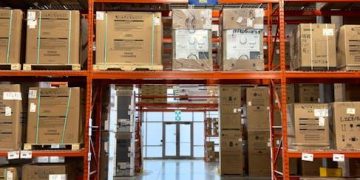In the ever-evolving landscape of renewable energy, solar power stands as a beacon of promise, capturing the imagination of businesses eager to embrace sustainability. Yet, beneath the sunlit allure lies a pressing question: Can businesses truly place their trust in solar energy providers? As companies pivot towards greener solutions, the reliability, transparency, and long-term viability of solar partnerships become paramount. This exploration delves into the intricate dance between innovation and trust, shedding light on the factors that businesses must consider when venturing into the solar frontier. Join us as we unravel the complexities of this sun-powered journey, navigating the promises and pitfalls that shape the solar energy sector today.
Evaluating Reliability in Solar Energy Contracts
When assessing the dependability of agreements with solar energy providers, several critical factors should be considered to ensure a smooth transition to renewable energy. First and foremost, it’s essential to examine the provider’s track record and reputation in the industry. Research their history of project completions, customer satisfaction ratings, and any accolades or recognitions they might have received. A provider with a proven history of successful installations and satisfied clients can offer peace of mind and a reliable partnership.
Furthermore, scrutinizing the terms and conditions of the contract is vital. Businesses should look for transparent pricing structures and comprehensive service agreements that cover installation, maintenance, and potential upgrades. A trustworthy solar energy provider will offer clear communication and detailed explanations of all terms. Key considerations include:
- Warranty Coverage: Ensure that the solar panels and other components come with robust warranties that cover both performance and physical integrity.
- Maintenance Services: Verify that the provider offers ongoing maintenance and support to address any issues that may arise post-installation.
- Financial Stability: Consider the financial health of the provider to ensure they will be around for the duration of the contract.

Understanding the Financial Implications of Solar Investments
Investing in solar energy can significantly alter a business’s financial landscape, offering both challenges and opportunities. Understanding the costs and benefits associated with these investments is crucial for any business considering a switch to solar power. The initial outlay can be substantial, but the long-term savings on energy bills often justify the expense. Additionally, businesses can take advantage of various incentives, such as tax credits and grants, to offset the initial costs. However, these incentives can vary widely by location, making it essential for businesses to conduct thorough research to maximize their financial benefits.
When evaluating solar energy providers, businesses should focus on several key factors that can influence the financial outcome of their investment:
- Reliability and Reputation: Choose providers with a proven track record and positive customer reviews.
- Comprehensive Warranties: Ensure that the provider offers warranties that cover both the solar panels and the installation work.
- Financial Stability: Partner with companies that have a stable financial background to ensure they will be around for the duration of the solar system’s lifespan.
- Transparent Pricing: Look for clear and transparent pricing structures without hidden fees.
By considering these factors, businesses can make informed decisions, balancing upfront costs with long-term financial gains, and ensuring a trustworthy relationship with their solar energy provider.

Assessing the Environmental Impact of Solar Energy Solutions
When evaluating the ecological footprint of solar energy, businesses often weigh the benefits of clean energy against potential drawbacks. On the positive side, solar solutions significantly reduce greenhouse gas emissions, as they harness the sun’s power rather than relying on fossil fuels. This shift not only decreases the carbon footprint but also helps in conserving water resources, which are often used extensively in conventional power generation.
However, the production and disposal of solar panels present challenges. The manufacturing process involves the use of hazardous materials and requires substantial energy, albeit much less than traditional energy sources. Moreover, end-of-life management of solar panels is crucial, as improper disposal can lead to environmental contamination. Therefore, businesses should consider the following when selecting a provider:
- Transparency in the supply chain and production processes.
- Commitment to sustainable sourcing and recycling programs.
- Proven track record in minimizing environmental impact during installation and maintenance.
By prioritizing these factors, businesses can ensure their transition to solar energy is not only efficient but also environmentally responsible.

Choosing the Right Solar Provider for Long-Term Success
In the journey towards embracing solar energy, selecting a provider that aligns with your business goals is paramount. Reliability is a key factor; a reputable provider should offer a proven track record of successful installations and a strong customer service reputation. It’s beneficial to review client testimonials and case studies that highlight their expertise and reliability over time.
Moreover, consider the financial stability of the provider. A financially sound company is more likely to stay operational for the long haul, ensuring they can uphold warranties and maintenance services. Technical expertise is equally important, as it guarantees that the provider can deliver cutting-edge technology tailored to your specific needs. Look for providers who offer:
- Comprehensive consultation services
- Custom design and engineering solutions
- Flexible financing options
- Post-installation support and maintenance
By meticulously evaluating these aspects, businesses can forge partnerships with solar providers that not only meet immediate energy needs but also support sustainable growth and innovation.
The Way Forward
As the sun dips below the horizon, casting a warm glow over the landscape of renewable energy, the question remains: can businesses truly trust solar energy providers? Like any journey into uncharted territory, the path is paved with both challenges and opportunities. The promise of solar energy is as bright as the sun itself, offering businesses a chance to harness sustainable power while navigating the complexities of technology, reliability, and partnerships.
the decision to trust a solar energy provider rests on a foundation of thorough research, transparent communication, and a shared vision for a greener future. As businesses stand on the precipice of this solar frontier, they must weigh the potential for innovation against the need for reliability, forging partnerships that are as enduring as the sun’s own promise of light.
So, as the day draws to a close and the stars begin to twinkle, businesses are left with a choice: to embrace the dawn of solar energy with cautious optimism or to remain in the shadows of traditional power. The sun will rise again tomorrow, offering a new chance to illuminate the path forward—one that is as bright and sustainable as the energy source itself.


































